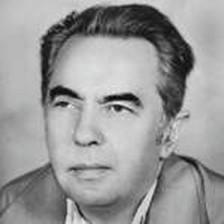
Tiberiu Olah (1927-2002, Romania) studied composition in Cluj-Napoca, and at the „P.I.Tchaikovsky” Conservatory in Moscow, then attended specialization courses in München, West Berlin and Darmstadt. He was a professor of orchestration and composition at the National University of Music in Bucharest (1954-2001), and a Doctor of Musical Arts (1978 in Cluj-Napoca, with the thesis Certain Aspects in Connection with Musical Time and Space). Olah composed more than 120 works, covering all musical genres (also film and stage music) and was already crowned with success in his youth. He was awarded several important prizes, including the Romanian Academy Award (1965), the International Koussewitzky Prize (USA, 1967) and Grand Prize for the entire creation of the Union of Composers and Musicologists in Romania (1993). He continues to be seen as one of the most important composers of the post-Enescian „gold generation”.
With its inspiration source in Brâncuși’s Pasărea măiastră – Majestic Bird, Sonata for Clarinet Solo was dedicated to the renowned Romanian clarinet player Aurelian Octav Popa, and is the second work from the cycle entitled Omagiu lui Brâncuși – Homage to Brancusi, that represents the defining turning point of style in his creation. With the term Sonata, the composer does not refer to placing the musical discourse within the classical perimeter of form, but to the continuous development of musical ideas having – in this particular composition cycle –ethos as a common feature, and also expressed through the alternations static-dynamic, polyphonic-monophonic, melismatic-giusto. (Razvan Metea) „It is a piece of immense interior turmoil, an exploration of the extreme – and the apparently only now discovered – limits of expressivity of the instrument.” (Radu Gheciu). And in conclusion, Roman Vlad considered this work as being “one of the best compositions for clarinet in the world”.


